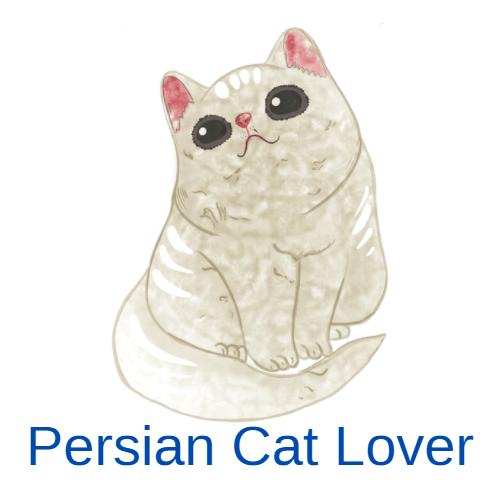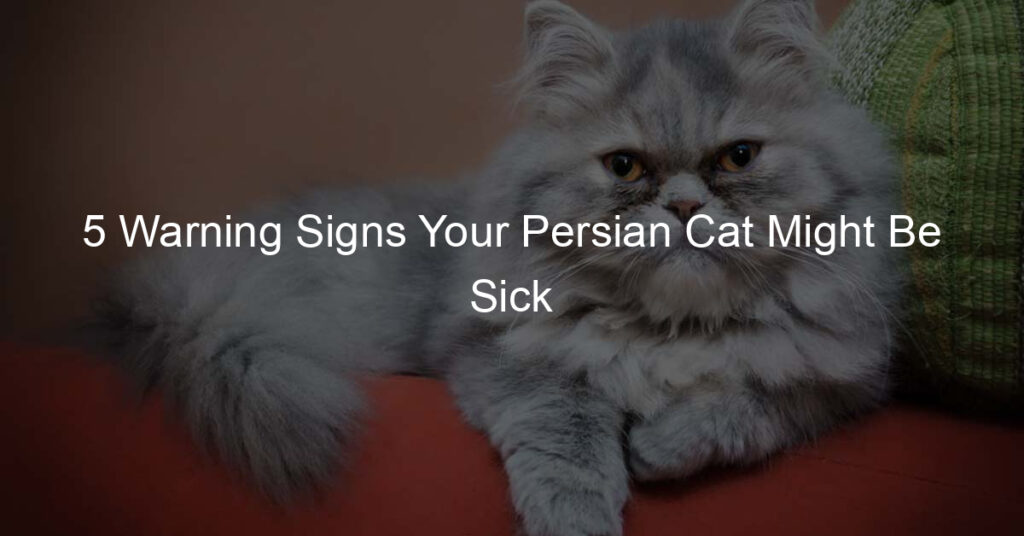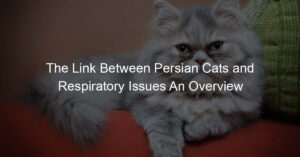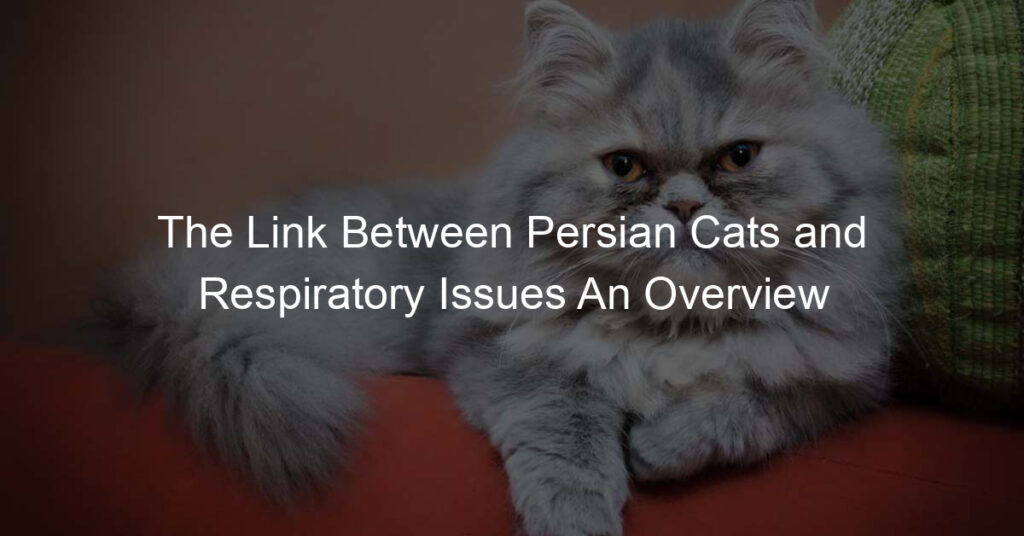Persian cats are gorgeous creatures, and it’s no wonder they’re one of the most popular breeds. But did you know that Persian cats are also prone to certain health problems? In this blog post, we’ll take a look at the 5 warning signs that your Persian cat might be sick. If you notice any of these changes in your cat, be sure to take them to the vet right away!
1. Loss of Appetite: If your Persian cat suddenly stops eating, it could be a sign that they’re not feeling quite right. Cats naturally have hearty appetites, so if your Persian is refusing to eat anything, it may be time to take them to the vet for a checkup.
2. Change in Behavior: If you notice that your Persian is acting strangely or out of character, it could be a sign of an underlying illness. Pay close attention to any sudden changes in behavior, such as increased aggression or lethargy.
3. Weight Loss: Have you noticed that your cat has lost weight without changing their diet? This could be a sign of a serious health issue, so it’s important to take them to the vet right away.
4. Vomiting or Diarrhea: If your Persian cat is vomiting or has frequent diarrhea, this could be an indication of something more serious. These are both common symptoms of intestinal blockage and other illnesses, so you should take your cat to the vet right away.
5. Unusual Lumps or Bumps: If you notice any unusual bumps, lumps, or growths on your cat’s body, make sure to get them checked out by a vet. While some of these may be harmless, they could also indicate something more serious such as cancer.
How do cats sit when they are sick?
When a cat is feeling unwell, they tend to look and sit differently than usual. One way cats sit when they are sick is with their face pressed against the ground—whether that may be against a floor, carpet, or pillow. They will sometimes tilt their head to the side and remain in that position for long periods. They might take shifts sitting like this and laying down distractedly on their sides.
It can be difficult for cat owners to tell when their cats are ill as felines try very hard to hide any signs of weakness from both predators and humans alike. Nevertheless, attentive owners should observe if there is any change in how a cat typically sits; as mentioned above if it’s an atypical stance more so than just being relaxed or comfortable. Such an indication could be the first step in getting kitty the medical attention they need.
When should I worry about my cat being sick?
Taking care of your cat’s health should always be a priority, so if your kitty is showing any signs that something could be wrong, it’s best to take action. Common signs that your cat may be ill include changes in behavior such as more sleep or reduced activity, a decrease in appetite or weight loss, strange lumps on the body, and increased visits to the litter box.
If you notice any of these changes, it’s important to make an appointment with your vet as soon as possible. Early detection and care can help keep your furry one feeling their best!
Where do cats hide when they are sick?
When cats are starting to feel a bit under the weather, they typically have a sixth sense that leads them to seek out cozy spots to rest. Unfortunately, this can make it difficult for owners to keep an eye on their pet’s health as these hideaways might be tucked away in corners of the house or concealed under furniture.
Although most cats will return to their usual spots when they are feeling better, if owners suspect that their cat is ill they should watch out for any unusual behaviors or nooks. For instance, an overly warm bedroom with the door closed would likely signal that there might be something wrong and it’s best to check up on your furry friend just in case.
How can I make my Persian cat healthy?
Taking good care of your Persian cat can be a great way to ensure its health and well-being. Start by making sure you’re feeding them a healthy diet with quality ingredients, as this is essential for their long-term health.
You should also always make sure they have access to clean water and are staying active—try using interactive toys or regular playtime with humans or other pets to keep them engaged. Regular grooming is also important: not only will it make them look (and smell!) good, but it will help keep their skin and coat in check and minimize potential problems like matting and hot spots.
Finally, getting regular checkups from your vet is essential—that way if any issues arise you can catch them early on before they become bigger problems. That way, your Persian cat can be around the house for many years to come!
Final thoughts: 5 Warning Signs Your Persian Cat Might Be Sick
It can be difficult to identify if your cat is sick and Persian cats, being particularly more prone to illnesses, require extra attention. Paying close attention and acting quickly when you notice changes in your furry friend’s diet or behavior is the best way to ensure that they stay healthy and safe.
If you suspect something is wrong with your beloved Persian cat, take them to the veterinarian as soon as possible. You should also monitor their diet, making sure they are eating enough nutrients, getting plenty of water, and engaging in a daily exercise routine.
Adopting these methods will help keep them feeling vibrant long into old age! But if you need support on this journey, don’t hesitate to reach out for professional help – many certified Persian breeders can provide useful advice and resources specific to this breed.














